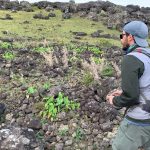Recent evidence from both animal and human studies suggests that the composition of the gut microbiome plays a crucial role in long-term health, comparable to the impact of exercise and diet choices. As individuals age, the balance of gut microbiome populations shifts, favoring pro-inflammatory microbes over beneficial ones responsible for producing essential metabolites like butyrate. This aging process may begin as early as the 30s and is believed to affect immune function in clearing problematic microbes. Fortunately, therapies such as fecal microbiota transplantation have shown promise in rejuvenating the gut microbiome in animal models. This approach, using stool samples from young donors, has led to lasting positive changes in gut microbiome populations, resulting in improved health and longevity. However, careful screening of donor samples is crucial, especially in older recipients, to avoid potential risks associated with age-related vulnerabilities to certain microbes.
The human gut microbiome undergoes changes throughout the aging process, with distinct shifts in microbial communities observed at different stages of life. Research indicates that the gut microbiome becomes more unique to individuals at extreme ages, possibly reflecting adaptations to diet and living environments that remain relatively stable. In individuals over 100 years old, a microbiome profile with greater diversity and an abundance of health-associated taxa has been noted. While the gut microbiome evolves over the lifespan, certain features have been linked to age-related diseases and could offer insights into longevity and resistance to aging-related conditions. Environmental factors also play a significant role in shaping the gut microbiome, as evidenced by distinct microbial features observed across different geographic regions. Despite some consistent taxonomic changes with age, there are notable variations depending on the region, underscoring the intricate interplay between the gut microbiome, aging, and environmental influences.





